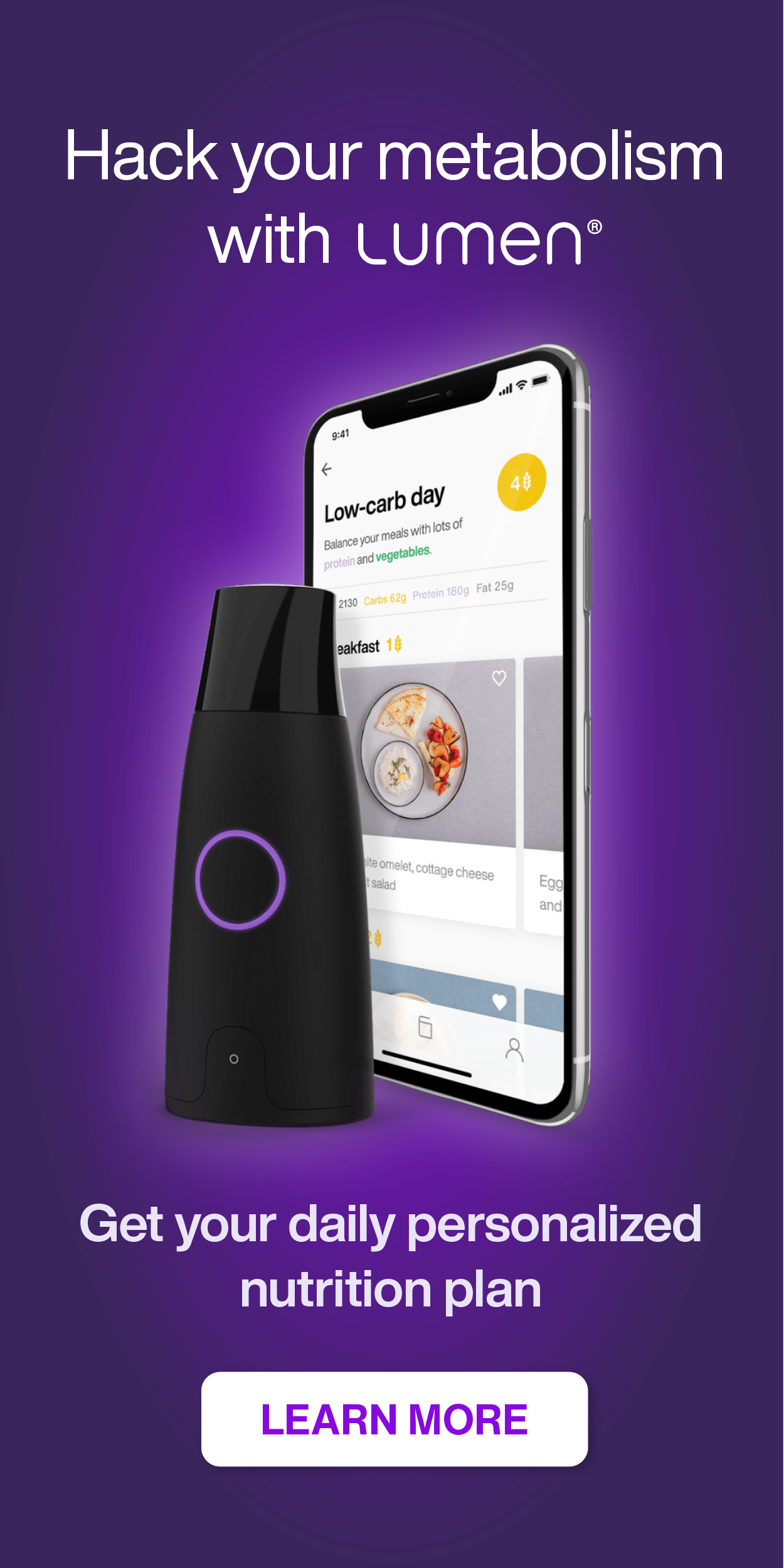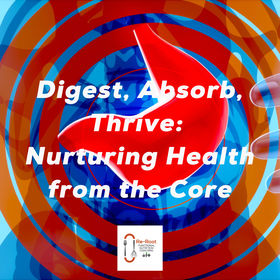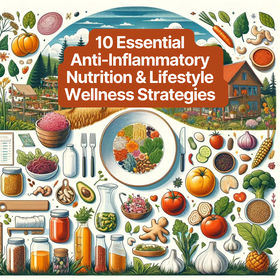
Introduction
The term “anti-nutrients” might sound alarming, but they’re a natural part of many foods we consume daily. While they can interfere with nutrient absorption, they also have potential health benefits. This guide delves deep into the world of anti-nutrients, shedding light on their pros and cons and offering strategies for optimal consumption.
What Are Anti-Nutrients?
Anti-nutrients are compounds, primarily in plant-based foods, that can interfere with the absorption of vitamins, minerals, and other nutrients. They can bind to nutrients and reduce their absorption, but they also have protective effects against certain diseases.
Navigating the Complex World of Anti-Nutrients: From Benefits to Management
Anti-nutrients, despite their intimidating name, are a natural part of many foods we consume daily. While they can pose challenges for certain individuals, they also come with a range of benefits. Understanding them is the key to harnessing their advantages while mitigating potential drawbacks. Here’s a deeper dive into the multifaceted world of anti-nutrients:
Health Risks of Eating Anti-Nutrients: The Potential Pitfalls
- Nutrient Malabsorption: Some anti-nutrients can inhibit the absorption of essential nutrients like calcium, iron, and zinc, potentially leading to deficiencies.
- Digestive Discomfort: Foods high in certain anti-nutrients might cause bloating, gas, or stomach discomfort in some individuals.
- Exacerbation of Autoimmune Diseases: Preliminary research suggests that certain anti-nutrients might trigger or worsen specific autoimmune conditions.
Who Really Needs to Be Concerned About Eating Anti-Nutrients? Tailoring Your Diet to Your Needs
- Individuals with Digestive Disorders: Those with conditions like IBS or Crohn’s might find that certain anti-nutrients exacerbate their symptoms.
- People with Mineral Deficiencies: If you’re deficient in minerals like iron or zinc, you might need to monitor foods high in phytates closely.
- Thyroid Concerns: Individuals with thyroid issues should be cautious with foods rich in goitrogens, which can interfere with thyroid function.
Are Anti-Nutrients Safe to Eat? Debunking the Myths
For most people, foods containing anti-nutrients are not only safe but also nutritious. They often come packed with beneficial compounds and nutrients. It’s all about balance and understanding your body’s needs.
Benefits of Anti-Nutrients: The Silver Lining
- Protection Against Diseases: Many anti-nutrients double as antioxidants, combating oxidative stress and potentially reducing the risk of chronic ailments.
- Gut Health Boosters: Some, like certain lectins, can act as prebiotics, nourishing the beneficial bacteria in our gut.
- Cancer Prevention Potential: Compounds like lectins and saponins are being researched for their potential anti-cancer properties.
How to Reduce Anti-Nutrients in Your Body: Practical Tips for Optimal Health
- Soaking and Sprouting: Simple techniques like soaking beans, grains, and seeds can diminish their anti-nutrient content.
- Heat is Your Friend: Cooking can be a game-changer, as many anti-nutrients are heat-sensitive.
- The Magic of Fermentation: This age-old process can break down anti-nutrients, enhancing digestibility and nutrient absorption.
Leaky Gut and Anti-Nutrients:
1. What is Leaky Gut? Leaky gut refers to a condition where the tight junctions of the intestinal walls become loose, allowing undigested food particles, toxins, and bacteria to “leak” into the bloodstream. This can trigger inflammation and a host of other health issues.
2. How Anti-Nutrients Play a Role: Certain anti-nutrients, especially lectins, are known to disrupt the gut barrier. When consumed in large amounts or in sensitive individuals, they can bind to the gut lining, potentially leading to increased permeability. This can further exacerbate the symptoms of a leaky gut.
Addressing the Issue:
1. Dietary Adjustments:
- Limit High Anti-Nutrient Foods: Temporarily reduce or eliminate foods high in problematic anti-nutrients. For instance, if lectins are a concern, you might consider reducing the intake of raw legumes and certain grains.
- Preparation Methods: Use cooking methods that decrease anti-nutrient levels, such as soaking, sprouting, boiling, and fermenting.
2. Gut Healing Foods and Supplements:
- Bone Broth: Rich in collagen and amino acids, it can help repair the gut lining.
- Probiotics: Beneficial bacteria can help restore gut balance and integrity.
- L-Glutamine: An amino acid that is essential for repairing the intestinal lining.
- Digestive Enzymes: Can assist in breaking down food particles, reducing the chance of them irritating the gut lining.
3. Avoid Irritants: Limit or eliminate substances that can irritate the gut, such as NSAIDs, alcohol, and certain antibiotics (unless prescribed and necessary).
4. Manage Stress: Chronic stress can exacerbate leaky gut. Incorporate stress-reducing practices like meditation, deep breathing exercises, and regular physical activity.
5. Consultation: Always consult with a healthcare professional or functional nutrition coach who can provide personalized advice and monitor your progress.
In conclusion, while anti-nutrients can play a role in leaky gut, they are just one piece of the puzzle. Addressing the issue requires a holistic approach that considers diet, lifestyle, and overall health.
Comprehensive Guide to Anti-Nutrients: Key Examples and Their Dietary Sources
Navigating the world of nutrition can often feel like a maze, especially when it comes to understanding components like anti-nutrients. The table below provides a comprehensive overview of various anti-nutrients, offering insights into where they’re commonly found, their effects on health, and strategies for managing their intake. This guide aims to demystify anti-nutrients, empowering you to make informed dietary choices.
Anti-NutrientExamplesWhy Good for Your HealthWhy Bad for Your HealthManagementWho’s Most Susceptible?More Info
| Lectins | Raw legumes, grains, nightshade vegetables (tomatoes, eggplants, peppers), dairy, eggs, seafood, corn | Support cellular function, antioxidant properties | Disrupt gut barrier, nausea | Cooking, fermentation | Individuals with autoimmune conditions, gut issues | Healthline – Lectins |
| Oxalates | Spinach, rhubarb, beet greens, almonds, cashews, tea, chocolate, berries, kiwi, figs, parsley, chard | Anti-inflammatory effects, cellular function support | Contribute to kidney stones | Boiling, pairing with calcium-rich foods | Those with kidney issues or a history of kidney stones | WebMD – Oxalates |
| Histamine | Aged cheeses, cured meats, fermented foods, alcohol, vinegar, smoked fish, strawberries, eggplants | Crucial for brain function, digestion | Trigger histamine intolerance symptoms | Low-histamine diet, freshly cooked meals | Individuals with histamine intolerance | Verywell Health – Histamines |
| Goitrogens | Broccoli, cauliflower, kale, Brussels sprouts, cabbage, turnips, radishes, spinach, strawberries, millet | Anti-cancer properties, nutrient-rich | Interfere with thyroid function | Cooking, monitor intake if thyroid issues | Those with thyroid disorders | Functional Nutrition Answers – Goitrogens |
| Phytates | Whole grains, seeds (sunflower, flaxseed, chia), nuts (almonds, walnuts), legumes, tubers, bran | Antioxidant properties prevent kidney stones | Inhibit mineral absorption | Soaking, sprouting, fermenting | Individuals with mineral deficiencies | Healthline – Phytic Acid |
| Phytoestrogens | Soy products, flaxseeds, sesame seeds, berries, wheat bran, oats, barley, lentils, apples | Protect against certain cancers, osteoporosis | Mimic estrogen, hormonal imbalances | Moderation, fermented soy products | Those with hormone-sensitive conditions | Medical News Today – Phytoestrogens |
| Tannins | Tea, coffee, grapes, wine, blueberries, pomegranates, cranberries, dark chocolate, apples, quinces | Antioxidant properties, reduce blood pressure | Inhibit iron absorption | Separate from iron-rich foods, low-tannin tea | Individuals with iron-deficiency anemia | Dr. Axe – Tannins |
| FODMAPS | Garlic, onions, apples, pears, asparagus, beans, lactose, fructose, wheat, rye, mushrooms, honey | Act as prebiotics, improve gut health | Cause digestive distress | Low-FODMAP diet, fermentation | Those with IBS or other digestive disorders | Monash University – FODMAP |
| Saponins | Legumes, oats, spinach, asparagus, potatoes, garlic, onions, quinoa, ginseng, chickpeas | Antioxidant, immune-boosting properties | Interfere with nutrient absorption | Cooking, soaking, rinsing | Individuals with gut permeability issues | Dr. Kilitz – Saponins |
| Alkaloids | Nightshade vegetables, green potatoes, certain beans, certain grains, quinoa, bell peppers, paprika | Antioxidant properties, cellular support | Cause inflammation | Cooking, avoid green potatoes | Those with autoimmune or inflammatory conditions | ScienceDirect – Alkaloids |
| Protease Inhibitors | Soybeans, beans, grains, certain fruits (kiwi, pineapple), certain vegetables, eggs, potatoes | Protect against certain cancers | Interfere with protein digestion | Cooking, fermenting | Individuals with digestive enzyme deficiencies | NIH – Protease Inhibitors |
Low Anti-Nutrient Recipe
Navigating the culinary landscape with a focus on minimizing anti-nutrients can be a challenge, but it’s a rewarding journey that prioritizes health without sacrificing flavor. With the myriad of food choices available, it’s possible to craft dishes that are both delectable and aligned with dietary guidelines that emphasize nutrient absorption and overall well-being.
The recipe provided is a testament to this balance. It seamlessly integrates the principles of an anti-inflammatory Mediterranean diet with Dr. Mark Hyman’s Pegan diet, ensuring a meal rich in protein, fat, fiber, and carbohydrates. Each ingredient has been handpicked not just for its taste but also for its impressive array of phytochemicals, phytonutrients, vitamins, and minerals.
For those keen on exploring a diet that’s low in anti-nutrients while being rich in essential nutrients, this recipe is a delightful starting point. It’s a celebration of mindful eating, where every bite is a step towards optimal health.
Zesty Lemon-Herb Grilled Chicken Salad
Servings: 4
Ingredients:
For the Grilled Chicken:
- 4 boneless, skinless organic and pasture-raised chicken breasts
- 2 tbsp extra virgin olive oil
- 1 tsp dried organic oregano
- 1 tsp dried organic basil
- 1/2 tsp organic garlic powder
- Salt and pepper to taste
- Zest and juice of 1 organic lemon
For the Salad:
- 4 cups mixed organic salad greens (like arugula, spinach, and romaine)
- 1 cup organic mixed-colored cherry tomatoes, halved
- 1 organic cucumber, sliced
- 1/4 cup Kalamata olives, pitted
- 1 avocado, sliced
- 1/4 cup walnuts, toasted
- 2 tbsp pumpkin seeds
For the Dressing:
- 1/4 cup extra virgin olive oil
- 2 tbsp apple cider vinegar
- 1 tbsp whole-grain Dijon mustard
- 1 garlic clove, minced
- Salt and pepper to taste
Instructions:
- Marinate the Chicken: In a bowl, combine olive oil, oregano, basil, garlic powder, lemon zest, lemon juice, salt, and pepper. Add the chicken breasts, ensuring they are well-coated with the marinade. Let them marinate for at least 30 minutes.
- Grill the Chicken: Preheat your grill or grill pan over medium heat. Once hot, add the chicken breasts and grill for 6-7 minutes on each side, or until fully cooked through. Once done, remove them from the grill and let them rest for a few minutes.
- Prepare the Salad: In a large salad bowl, combine the salad greens, cherry tomatoes, cucumber, olives, avocado slices, toasted walnuts, and pumpkin seeds.
- Make the Dressing: In a small bowl, whisk together the olive oil, apple cider vinegar, Dijon mustard, minced garlic, salt, and pepper until emulsified.
- Serve: Slice the grilled chicken and place it on the salad. Drizzle the dressing over the salad and toss gently to combine. Serve immediately.
When combined, these ingredients not only create a delicious and balanced meal but also offer a wide array of vitamins, minerals, phytochemicals, and phytonutrients. Each component of this salad contributes to overall health, supporting everything from heart health to digestion and providing anti-inflammatory and antioxidant benefits.
Conclusion
Anti-nutrients are a complex topic, but with the right knowledge, they don’t have to be intimidating. By understanding their sources, potential effects, and management strategies, you can make informed dietary choices that support your health and well-being. Remember, many foods containing anti-nutrients are also rich in essential nutrients and offer numerous health benefits. It’s all about balance and making informed choices.
Get Started On Your Journey to Wellness with Joseph at Re-Root Functional Nutrition Coaching
Looking for 1:1 anti-inflammatory diet coaching support to help you achieve your diet and lifestyle goals to support your sleep, then please book your free 30-minute discovery call with me today by clicking HERE.
During this call, we will:
- Uncover your story about your health challenges to date.
- Get clear on your diet and lifestyle goals to improve your health.
- Discuss how I can help you get back to feeling like your old self again.
- Share the details of my 3-Month Functional Nutrition & Lifestyle Coaching Program
- Learn about my overall coaching philosophy & what you can expect from me.
- See if we’re a good fit to work together.
- Walk away with key actionable steps to promote your wellness journey.
By the end of our conversation, you’ll feel optimistic and motivated to start making positive changes in your life.
Don’t keep putting off feeling better any longer, today’s the day to start making a difference.
Note: The information provided in this blog is for educational purposes only and should not replace personalized medical advice. Please consult with a healthcare professional or functional nutrition coach for individualized guidance and treatment.








